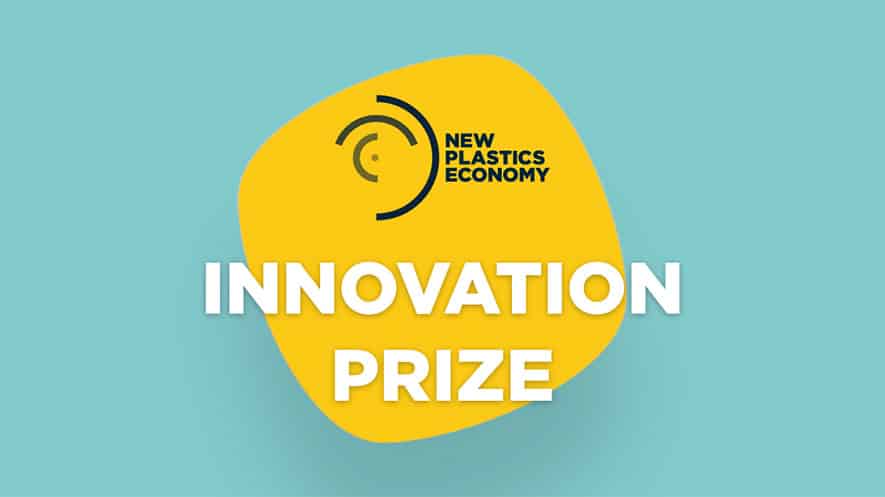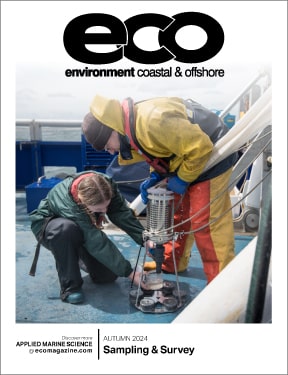The Prize which is funded by Wendy Schmidt as Lead Philanthropic Partner of the New Plastics Economy Initiative, calls for innovators, designers, scientist and entrepreneurs to help create packaging that keeps plastics out of the ocean.
The demand for plastics products is expected to double in the next 20 years – but the plastics system is broken. Only 14% of plastic packaging is recycled, with the remainder, worth $80-120 billion, lost as waste. Most plastic packaging items are used only once before being discarded, often ending up polluting the environment. If nothing changes, there could be more plastic than fish in the ocean by 2050. This new prize aims to keep plastics as valuable materials in the economy, and out of the ocean.
“After 40 years of effort, globally only 14% of plastic packaging is collected for recycling, with one third escaping collection and ending up in the environment. If we want to change this, we must fundamentally rethink the way we make and use plastics. We need better materials, clever product designs and circular business models. That’s why we are launching the New Plastics Economy Innovation Prize, calling for innovators, designers, scientists and entrepreneurs to help create a plastics system that works.”
– Dame Ellen MacArthur – Founder, Ellen MacArthur Foundation
HRH The Prince of Wales, who has been a champion for the health and resilience of the ocean for over forty years, will deliver the keynote speech at the launch event. At a meeting earlier this year with business leaders, designers and material experts, The Prince emphasized the urgency of the need to re-think the global plastics system and highlighted the important role of innovation and design in the transition to a circular economy in order to stem the flow of plastics into the ocean.
John Kerry, former U.S. Secretary of State, who has provided a video address for the launch event, commented in support of the New Plastics Economy Innovation Prize: “Focusing on ocean health, focusing on an initiative to save the oceans could not be more timely and it could not be more critical.”
To achieve the goal of eliminating plastic packaging waste, the Prize is composed of two parallel challenges:
1. The $1 million Circular Design Challenge which invites applicants to rethink how we can get products to people without generating plastic waste. The Challenge will focus on small-format packaging items (10% of all packaging) such as shampoo sachets, wrappers, straws and coffee cup lids, which are currently almost never recycled and often end up in the environment. Anyone with a good idea for how to get products to people without using disposable packaging can enter this Challenge partnered by OpenIDEO.
2. The $1 million Circular Materials Challenge seeks ways to make all plastic packaging recyclable. About 13% of today’s packaging, such as crisp packets and food wrappers, is made of layers of different materials fused together. This multi-layer construction provides important functions like keeping food fresh, but also makes the packaging hard to recycle. The Challenge therefore invites innovators to find alternative materials that could be recycled or composted. The Challenge partner is NineSigma.
“Working towards circularity in the way we make, use, and distribute plastic packaging will revolutionize the scale of the human footprint on our planet, hugely reducing plastic waste and its devastating impact on ocean health. The value of keeping materials in the economy is massive compared to the losses we suffer when plastic leaks into the very living systems we depend upon for our survival. The New Plastics Economy Prize is a call for creative design and technical innovation at a critical time.”
– Wendy Schmidt, Lead Philanthropic Funder
Innovators who apply to the Prize are competing for up to $2,000,000 in grants and visibility of their solutions to major businesses, the innovator community and the public. Winners will enter a 12-month accelerator program offering exclusive access to industry experts, commercial guidance, feedback on user and scalability requirements, advice on performance expectations, and access to innovation labs for testing and development. The first winners will be announced later this year. For more information, click here.

